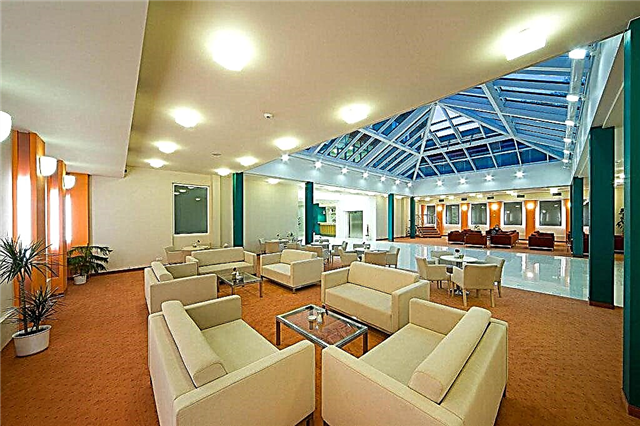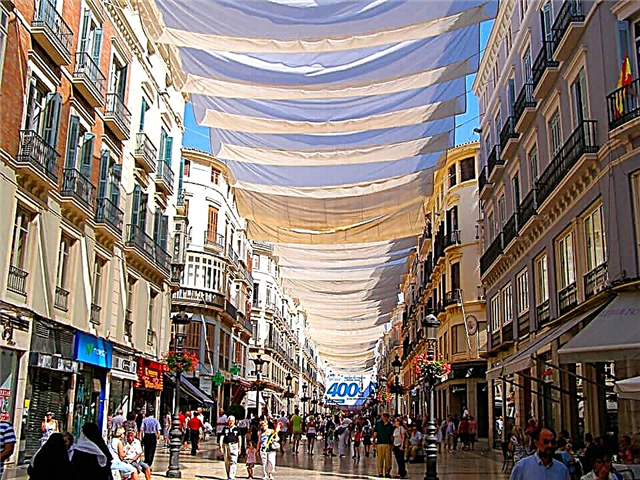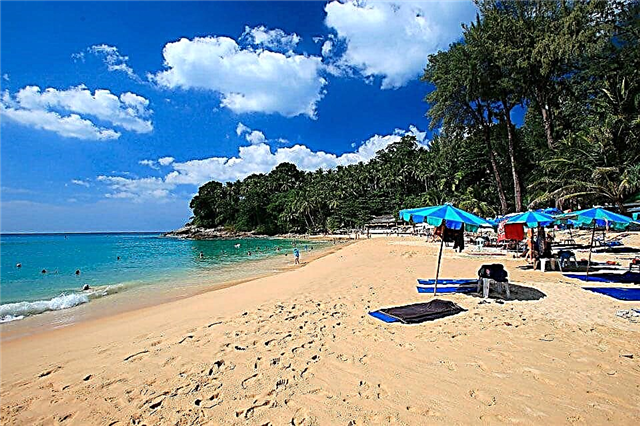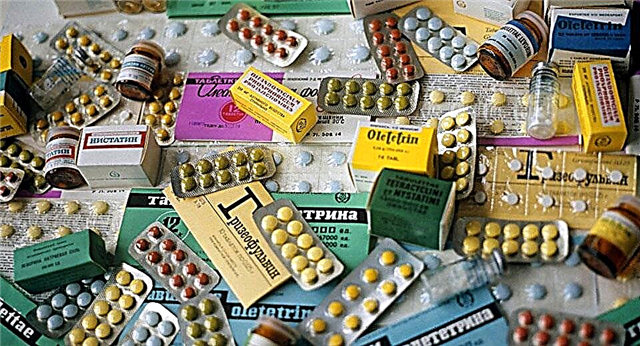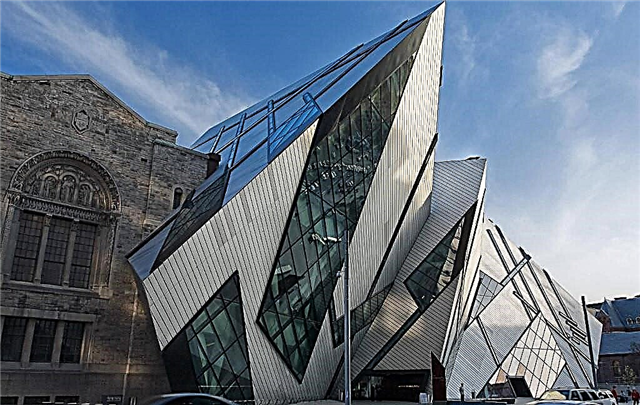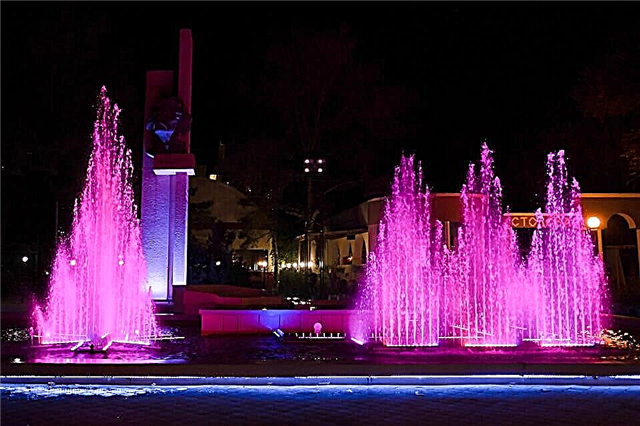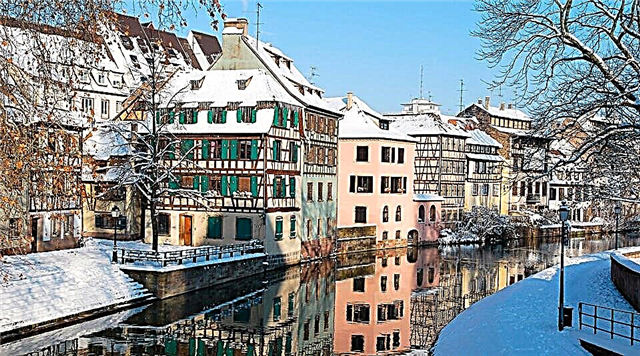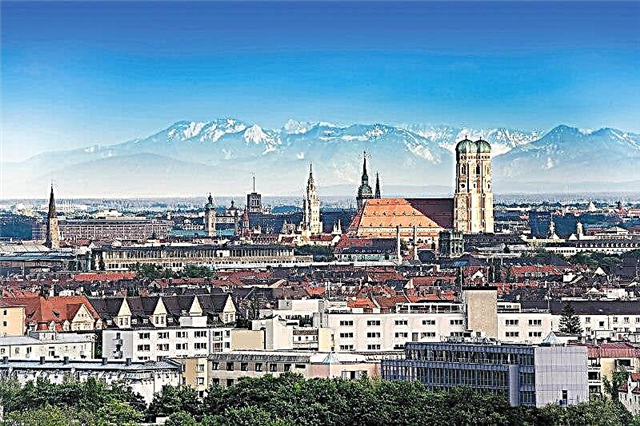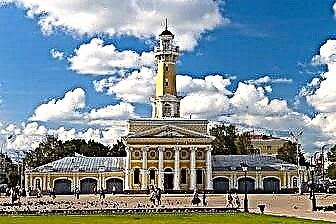The city of Kostroma, "sovereign", as they used to call it in folklore, is located on the picturesque banks of the Volga. This is the city where, in the Time of Troubles, fate was decided and the history of the Russian state was created, when the Zemsky Sobor appealed to the young Mikhail Romanov. The future tsar, hiding behind the walls of the Ipatiev Monastery, determined the entire further historical development of our country.
Kostroma is one of the centers of religious and ethnographic tourism, it is included in the classic route "The Golden Ring". In the central part of the city, there are still charming carved huts, solid noble mansions and merchant trading rows. The former power, wealth and glory of the city have over time turned into a priceless historical heritage.

The best hotels and hotels at affordable prices.
from 500 rubles / day
What to see and where to go in Kostroma?
The most interesting and beautiful places for walking. Photos and a short description.
Fire Tower
Historical monument of the XIX century, built in the classical manner according to the project of P. Fursov. The architectural merit of the building was rightfully appreciated by Emperor Nicholas II during his visit to Kostroma in 1834. After that, the fire tower began to be called the most beautiful in the territory of the Russian Empire. Now the building is part of the complex of the Kostroma Historical and Architectural Reserve.

Shopping arcade
Ancient merchant premises located on the left bank of the Volga. They worked on the construction of shopping malls for over a hundred years and finished only by the beginning of the 19th century. Once Kostroma was a rich merchant city, the trading rows were a symbol of the city's economic power. The author of the project was the architect of German origin K. von Kler. The Kostroma shopping arcades are considered the most representative and best preserved in Russia.

Guardhouse
An architectural monument of the 19th century, located in the center of Kostroma on Susaninskaya Square. During the times of the empire, the building was used for its intended purpose - the fined soldiers served their sentences here. With the advent of Soviet power, the guardhouse began to be used as a museum, then as a registry office and a library. Nowadays, the military history department of the city museum-reserve is located inside.

Borshchov House
Mansion on Susaninskaya Square, built in the style of late classicism. The house belonged to General S. Borshov. It was built in the 1920s and 1930s. XIX century designed by P. Fursov (other sources indicate authorship of N. Metlin). The building was badly damaged during a fire in 1847, the heirs of Borshchov sold the dilapidated house to the merchant A. Pervushin. The dealer restored the mansion and opened a luxurious hotel called "London" in it.

Romanov Museum
The museum was opened in 1913, just in time for the 300th anniversary of the Romanov dynasty. The architecture of the building is an imitation of an old Russian tower. Such a project was approved by the emperor and implemented by N. Gorlitsyn and L. Trebert. The museum exposition covers the history of the Romanov family and important historical milestones in the life of the rulers. Also in the collections are paintings, archaeological finds and objects of applied art.

Assembly of the nobility
The building is an example of the so-called "Russian provincial classicism", it was erected in the late 18th - early 19th centuries according to the project of M. Prave. The assembly of the nobility was the center of the cultural life of the district aristocracy of the Kostroma province. Balls, receptions were held here, meetings were held on various administrative issues. After 1917, the House of Pioneers was housed in the mansion; in 1991, the building was transferred to the Museum-Reserve.

Museum-Reserve "Kostroma Sloboda"
An open-air museum located not far from the Ipatiev Monastery. It was created in the middle of the 20th century. Wooden monuments of architecture of the 18th century, removed from the flooded territories, were transported to the territory of the museum. Later, buildings of the XIX-XX centuries were added. Initially, the reserve was called the Kostroma Museum of Wooden Architecture. On its territory you can see the huts, outbuildings and churches, completely made of wood.

Museum of Nature of the Kostroma Region
The museum building on Molochnaya Gora Street used to house the tea house of the Kostroma Sobriety Society, a stock exchange and a printing house. The exposition shows all the richness and diversity of the nature of the Kostroma region. The collection was formed thanks to the enthusiasts of the Kostroma Scientific Society. The museum has been actively forming funds throughout the 20th century. Since 2001, it has been functioning as a separate independent organization.

Museum of jewelery art
The museum was opened relatively recently by historical standards - in 2013. The task of the museum collection is to acquaint the guests of the city with jewelry Kostroma. The city has always been considered the habitat of the best craftsmen, Kostroma jewelry can be seen in shops throughout Russia, so the creation of the Museum of Jewelry Art was just a matter of time. This is a small private collection of 500 exhibits belonging to the 17th-20th centuries.

Forest Wonder Museum
The wooden building of the museum resembles a fairytale tower and a country mansion at the same time. Inside are the heroes of Russian fairy tales: Baba Yaga, Vodyanoy, Miracle Yudo, Leshy and other magical characters. Visits to the Miracle Forest will not leave indifferent either children or adults, since everyone is familiar with the traditional fairy tales of our country. The museum is located on the way from the center of Kostroma to the Ipatiev Monastery.

Museum of flax and birch bark
A small private collection created in 2005 by a townswoman N. Zabavina. For more than 10 years of its existence, the museum has gained popularity and has become a must-see on many tourist routes. The collection is assembled from a variety of handicrafts made from traditional Kostroma flax and birch bark. There is also a souvenir shop at the museum where you can buy interesting gizmos and gifts.

Drama Theater named after A. N. Ostrovsky
The main theater site of Kostroma and the region, which was built in the middle of the 19th century. Until that time, the city did not have a separate theater building. From the very beginning, famous plays by Ostrovsky and other playwrights were often staged on the stage. Many performances, staged by local directors, were successfully staged in St. Petersburg and Moscow, and also took part in prestigious theater festivals.

Holy Trinity Ipatiev Monastery
The Ipatiev monastery is considered one of the most significant in Russia. The monastery is associated with important and defining historical events for our country. According to one version, it was founded in 1330 by the Horde commander who converted to Orthodoxy. Thanks to the patronage of the boyar family of the Godunovs, the monastery became very powerful and influential during the time of Medieval Russia. Here for some time the founder of the Romanov dynasty, the young Tsar Mikhail, hid from enemies.

Epiphany - Anastasiin monastery
A convent founded by a disciple and associate of Sergius of Radonezh - the Monk Nikita in the 16th century. In fact, the monastery was formed on the basis of three monasteries - Epiphany, Anastasin and Holy Cross. During the Time of Troubles, it was plundered by the troops of False Dmitry II, the restoration continued until the middle of the 17th century. The interior painting of the cathedral was made by G. Nikitin and S. Savin, but the original frescoes have not survived to this day.

Church of the Resurrection on Debra
The temple, located on the banks of the Lower Debra River, was first mentioned in 1628. The church was built at the expense of city dwellers. The building is the only posad temple preserved in its original form on the territory of Kostroma. Presumably, the interior was painted by G. Nikitin's team. The first large-scale restoration of the temple was carried out at the beginning of the 19th century.

Monument to Ivan Susanin
The legend about Ivan Susanin, who led the Poles through the Kostroma forests, is known to everyone. In honor of this selfless and devoted to the state peasant, a monument was erected on Molochnaya Gora in 1967. It depicts the folk hero with pride and dignity, in contrast to the earlier destroyed monument, where Ivan is shown as a submissive little man bowing to the greatness of the royal person.

Terem of the Snow Maiden
The habitat of the fabulous granddaughter of Santa Claus, where she lives with her assistants - brownies and the cat Bayun. The tower itself is part of an entertainment complex, which includes souvenir shops, a restaurant of Russian cuisine, a belfry, and playgrounds. For visitors, fascinating and informative excursions are held throughout the complex, including the Snegurochka tower.

Manor Sledovo
A noble estate of the early 18th century, which belonged to the old Kartsev family. From this family emerged capable politicians, military leaders, scientists. Around the estate there is a park with magnificent flower gardens and galleries - a real reserve of rare plants. On its territory, the "Ball of Flowers" is annually held - a holiday with a concert program, games and grandiose exhibitions of bouquets.

Sumarokovskaya moose farm
The farm was founded in 1963 and is still the only moose farm in Russia. Elks live here in greenhouse conditions, the life expectancy of local inhabitants is 8-10 years longer than that of their wild counterparts. Visitors are allowed to feed and pet the animals; during the excursion, people will learn many interesting features from the life of elk.

Ostrovsky's gazebo
A gazebo on the banks of the Volga, an iconic place of the city and its recognizable symbol. It was built in 1956 on a high embankment with a picturesque view of Kostroma and the river valley. The gazebo is stylized as a noble building of the 18th-19th centuries; white stone was used in the construction. Some shots from the film "Cruel Romance" based on Ostrovsky's play "Dowry" were filmed in this place.


